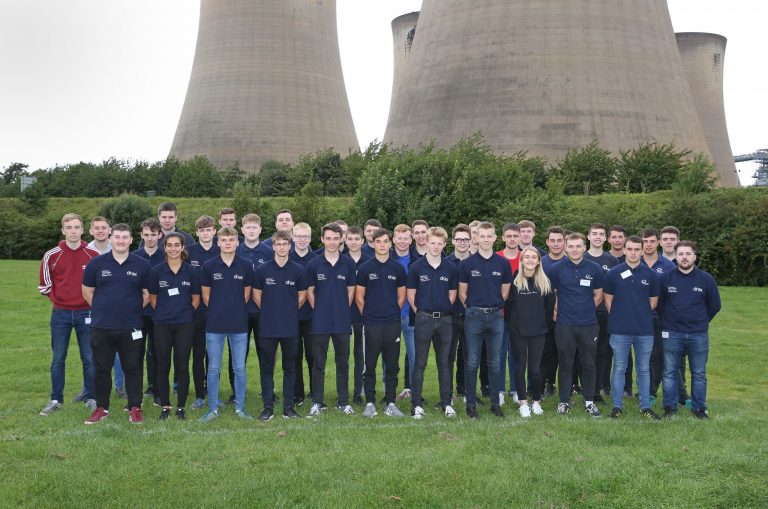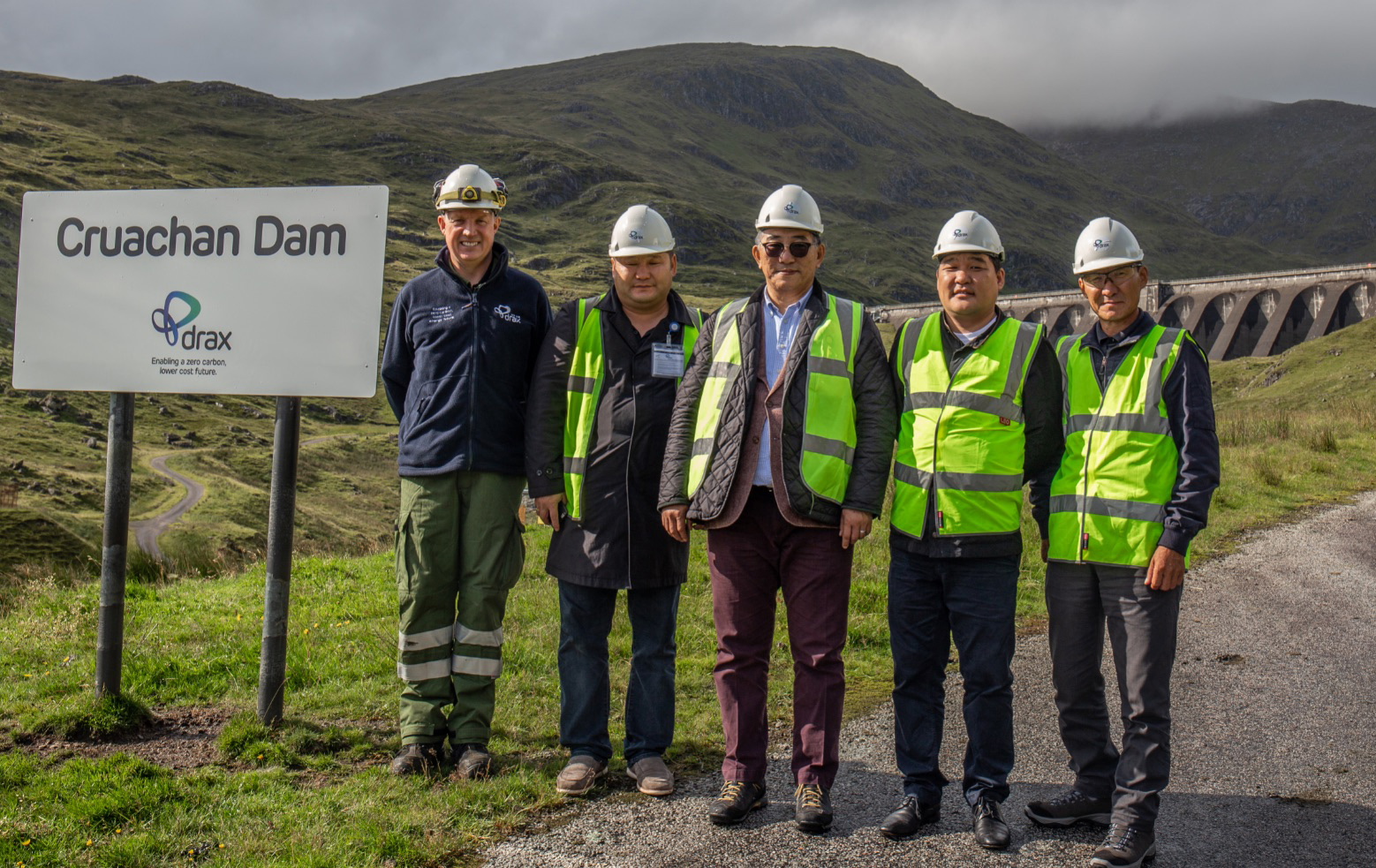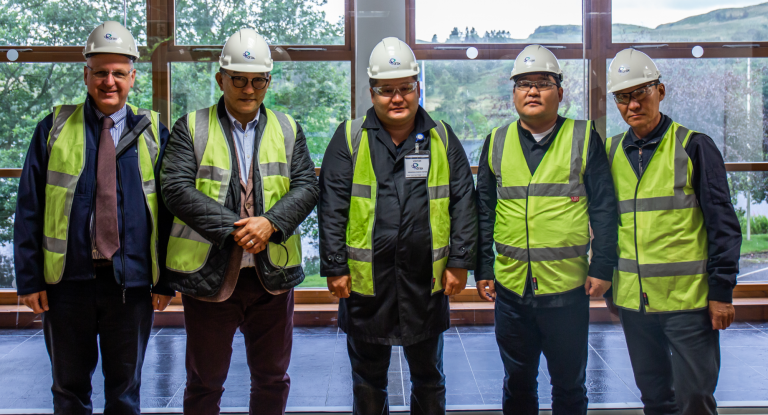
People working at Drax’s offices and power stations across the country baked cakes, or bought them to raise money for the charity, whilst others took part in an annual fun run at Drax Power Station in North Yorkshire.
Drax Group Chairman Phil Cox, started the 5km and 10km fun run which 70 employees took part in at the Skylark Nature Reserve next to the power station, near Selby. Each employee donated £1 per kilometre to take part in the event.
Those who opted to run the 10km course faced a climb up local landmark, Barlow Mound, which has views back over the power station, near Selby in North Yorkshire.
Hayley Adamson, Senior Biomass Portfolio Trader, completed the 5km race and was the first woman over the finishing line. She said:
“It’s great to see so many colleagues taking part in the fun run, the atmosphere’s been great – I just wish I’d completed it a bit quicker.”
Drax Group made a £2,000 charitable contribution to support the employees’ national fundraising day taking the total to £6,500 for Macmillan, which provides support and advice to cancer patients and their families.
Contractors working for Drax Power Station’s suppliers Hargreaves and Doosan Babcock also donated £1,200 towards the total raised for Macmillan Cancer Support.
Vicky Bullivant, Drax’s Head of Business Sustainability said:
“This was an outstanding Drax team effort with people right across the Group contributing to the total raised – including our contractors.
“People baked delicious cakes which were sold at a number of our offices and power stations – whilst many more of us enjoyed buying and eating them. If an army marches on its stomach then it’s probably no surprise that quite so many of our colleagues were able to complete the fun run during a morning filled with so much cake!
“We’re proud to have raised £6,500 for Macmillan, supporting the incredible work they do for so many people and we’re looking forward to organising more events over the course of the year to help raise money for charity.”
Photo caption: Phil Cox, Chair of Drax Group, starting the Fun Run at Skylark Nature Reserve, Drax Power Station
ENDS
Media contacts:
Ali Lewis
Drax Group Head of Media & PR
E: ali.lewis@drax.com
T: 07712670888
Selina Williams
Drax Group Media Manager
E: selina.williams@drax.com
T: 07912230393
Editor’s Notes
- In January Drax Group completed the acquisition of a portfolio of renewable, low-carbon and flexible power stations, in strategic locations across the country – from Scotland to the South East coast. This includes the pumped hydro storage facility in Cruachan and the run-of-river hydro plants in Lanark and Galloway.
- Drax Power Station in North Yorkshire is the UK’s largest power station and the country’s biggest renewable electricity generator.
- Since converting two thirds of the power station to use sustainable biomass instead of coal, it is producing enough renewable electricity for four million households and delivering carbon savings of more than 80%.
- If Drax is able to scale up its successful bioenergy with Carbon Capture and Storage (BECCS) pilot project to become the world’s first negative emissions power station, it would be reducing the carbon dioxide in the atmosphere at the same time as producing flexible, renewable power and supporting grid stability.
About Drax
Drax Group’s ambition is to enable a zero carbon, lower cost energy future. Its 2,600-strong employees operate across three principal areas of activity – electricity generation, electricity sales to business customers and compressed wood pellet production.
Power generation:
Drax owns and operates a portfolio of flexible, low carbon and renewable electricity generation assets across Britain. The assets include the UK’s largest power station, based at Selby, North Yorkshire, which supplies five percent of the country’s electricity needs.
Having converted two thirds of Drax Power Station to use sustainable biomass instead of coal it has become the UK’s biggest renewable power generator and the largest decarbonisation project in Europe.
Its pumped storage, hydro and energy from waste assets in Scotland include Cruachan Power Station – a flexible pumped storage facility within the hollowed-out mountain Ben Cruachan. It also owns and operates four gas power stations in England.
For more information visit www.drax.com
Customers:
Drax owns two B2B energy supply businesses:
- Haven Power, based in Ipswich, supplies electricity and energy services to large Industrial and Commercial sector businesses.
- Opus Energy, based in Oxford, Northampton and Cardiff, provides electricity, energy services and gas to small and medium sized (SME) businesses.
Pellet production:
Drax owns and operates three pellet mills in the US South which manufacture compressed wood pellets (biomass) produced from sustainably managed working forests. These pellet mills supply around 20% of the biomass used by Drax Power Station in North Yorkshire to generate flexible, renewable power for the UK’s homes and businesses.
For more information visit www.drax.com








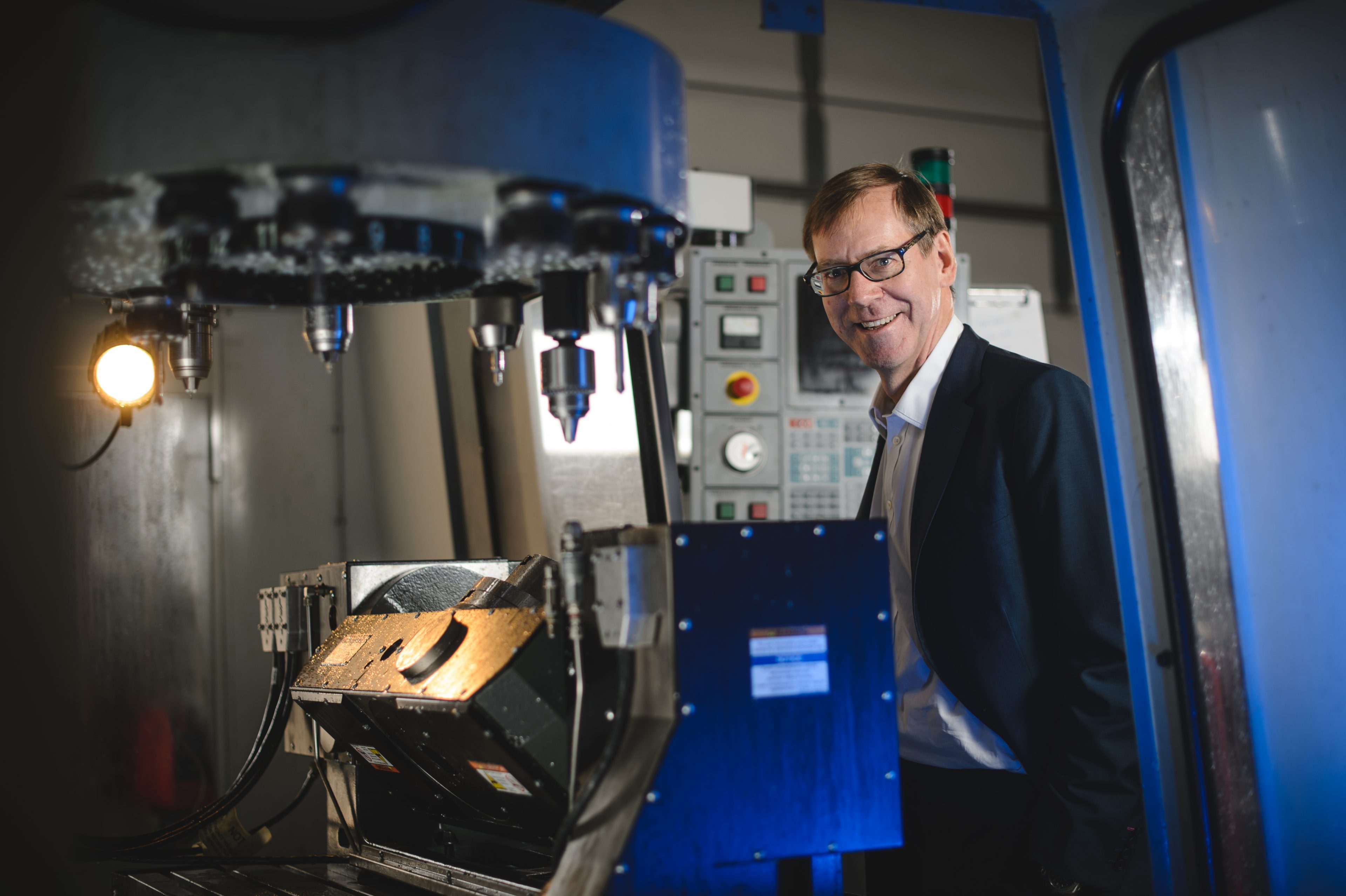



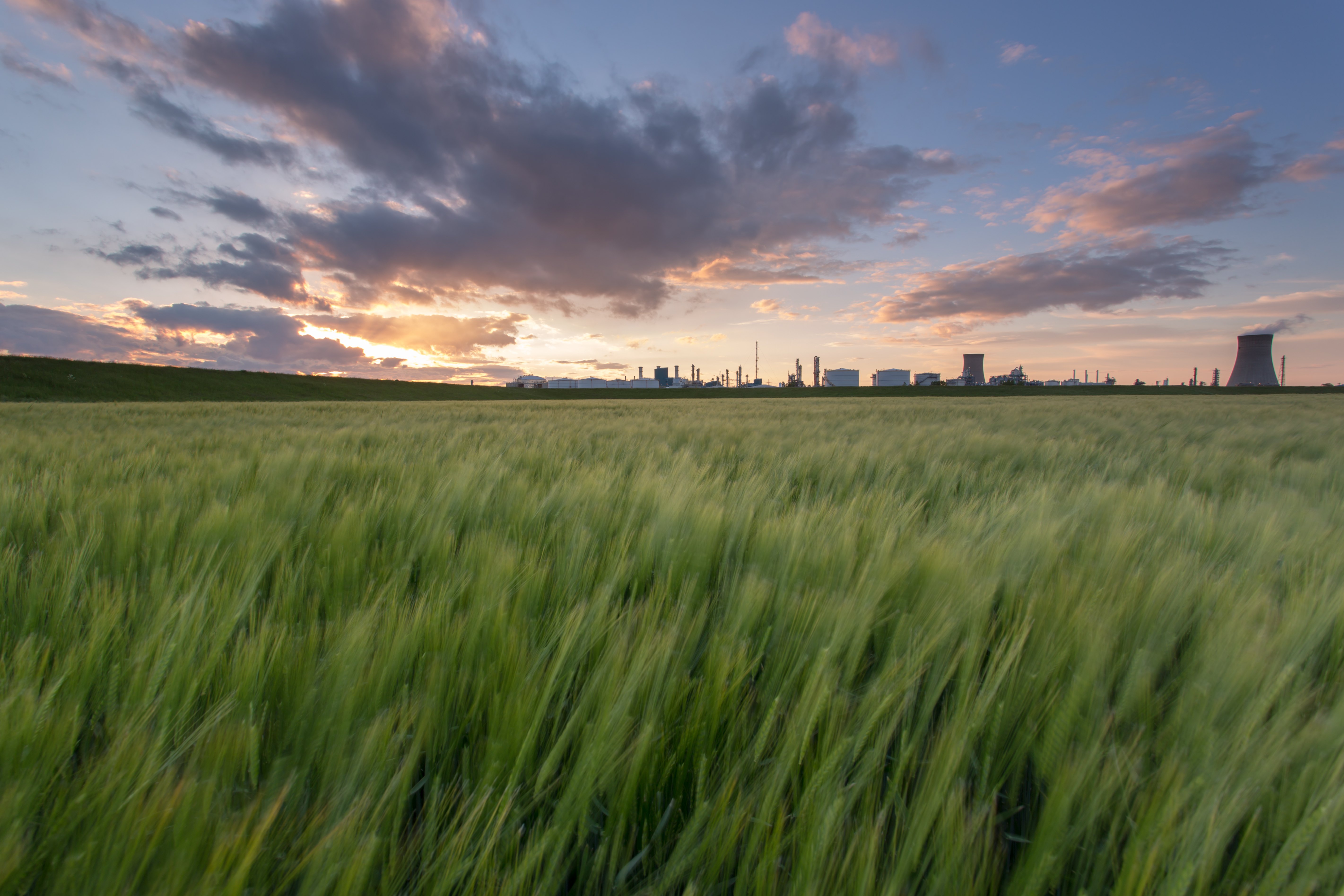
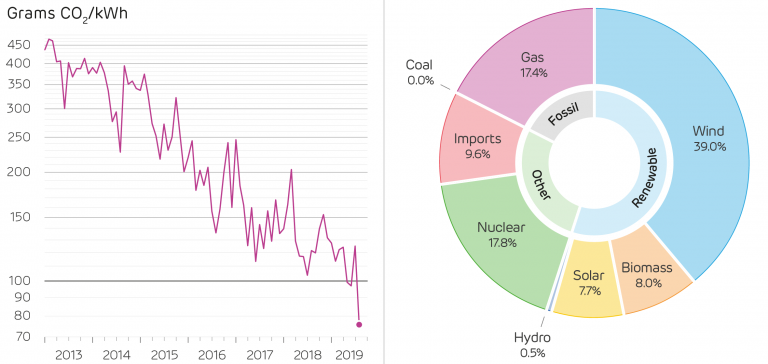
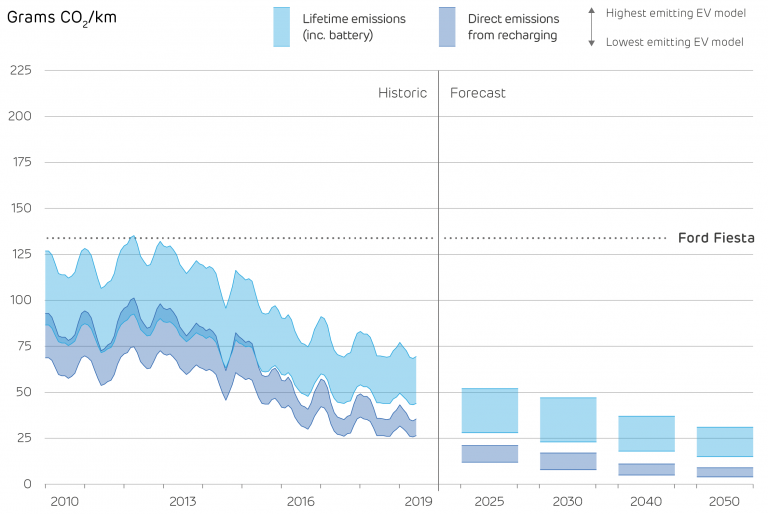

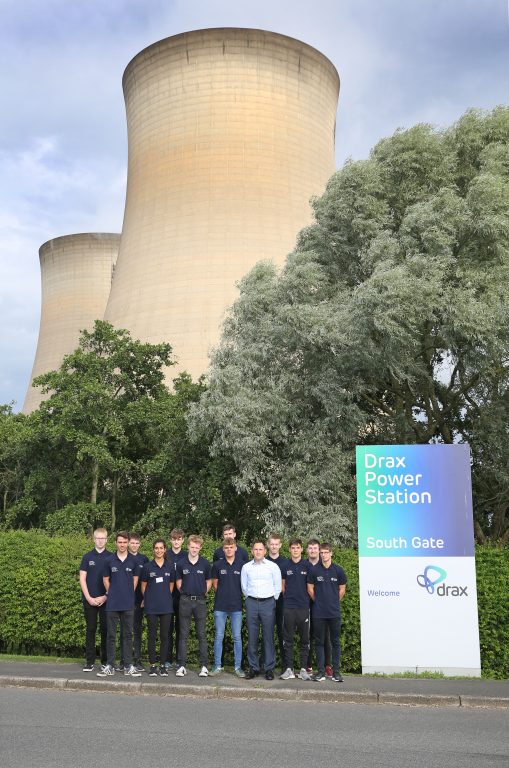 Andy Koss, CEO Generation said:
Andy Koss, CEO Generation said: